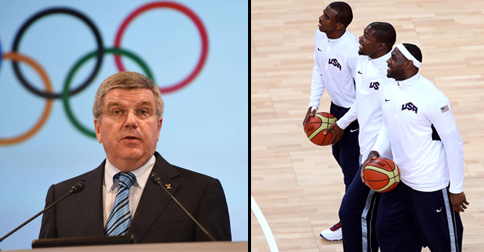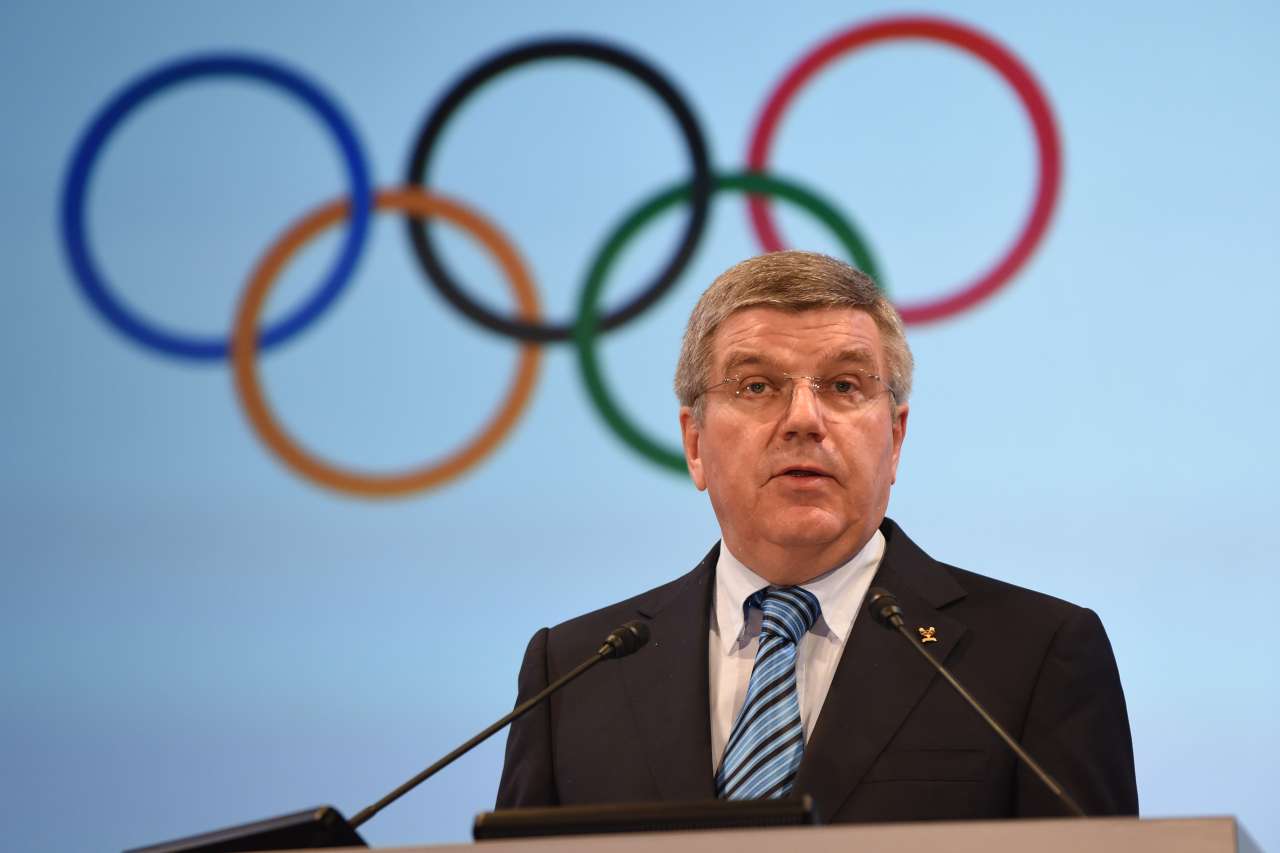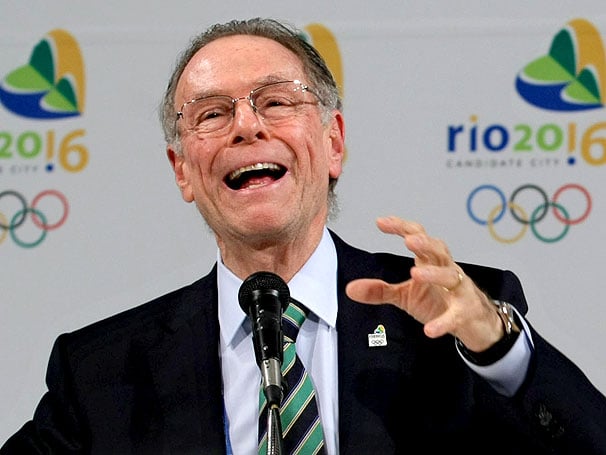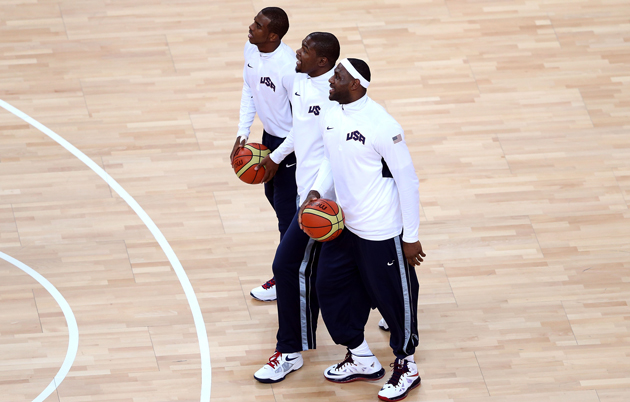
14 January, 2015. 15:00
IMRAN GASHKORI | Sports Journalist | Contact
After decades of pressure and debate, as well as an official application submitted by the International Basketball Federation, the IOC have this week confirmed that a three-men-a-side basketball variant will be included as a part of the official event program for the 2016 Olympics in Rio de Janeiro.
The final decision was made quietly during an annual committee meeting late last month.
After nearly a decade of exploring different options, the International Olympic Committee’s executive board have confirmed that they will to go ahead with the proposal despite the fact that the “request would result in a higher number of athletes and increased number of medals, thereby adding to the cost and complexity of the Games,”

This inclusion has resulted in the IOC declining another proposal put forward by FIBA which requested an increase to the number of 5-man basketball teams in the Olympics from 12 to 16.
IOC President, Thomas Bach, fronted a press conference yesterday morning in an effort to both confirm and dismiss rumours surrounding historic the 3-on-3 proposal.
“We have spent many months weighing up this proposal, and our final call was to include the appropriated version of basketball into the 2016 Olympic program,” Mr Bach explained to international sports news cameras at the IOC headquarters in Lausanne, Switzerland.
“This is a trial program and one that asks a lot more of both administrators, hosts, staff and players. However, keeping with the spirit of The Olympic Games, we have decided to include the 3-on-3, half-court variant”

Of the rumours surrounding the inclusion, Mr Bach made sure to clarify that the newly included competition would be listed in the program as “3-on-3” – with IOC deciding against the proposals recommendation that suggested the variant be named “Streetball”
“To avoid confusion with the traditional basketball competition, the new inclusion will be run as ‘3-on-3’ – and while we acknowledge that FIBA and other interested bodies have previously put forward alternative names, including ‘Streetball’ and ‘Half-court’ – we decided upon the internationally recognised former,”
Mr Bach went on to describe how the host nation of Brazil had already begun the preparations for appropriate 3-on-3 stadiums in stand-alone outdoor settings.

“Our committee’s Brazilian representative, Mr Carlos Arthur Nuzman, has informed me that this event will take place in an appropriate environment in downtown Rio De Janeiro”
In Bach’s dealings with the hosting nation, he has been assured that the ‘3-on-3’ debut will be a “success with international appeal”.
Similarly to the Equestrian and dressage events being hosted in the city’s rural outskirts – Bach has been informed by Brazilian IOC representative, Carlos Arthur Nuzman, that the ‘3-on-3’ competition will be hosted in Rio’s more disadvantaged basketball-ing hotspots.
Mr Nuzman had previously stated that while he too was opposed to naming the event ‘Streetball’ – he was very interested in creating an event that mirrored the 3-on-3 games that are most commonly played in urban ghetto environments.
In a written statement that was shared by Mr Bach, Nuzman described the hosts were undertaking an appropriation of Olympic venues to suit the style of 3-on-3 that most visiting athletes would be familiar with.
“Spectators will be given the opportunity to watch the competition in the evenings, from the comfort of their own cars. It is proposed that each game be played in the evenings and the lighting will be complimented by the headlights on spectator vehicles that are to be surrounding the arena,”
“The playing facilities will be of an international standard – complete with an asphalt surface half-courts and chained basketball nets.”

This push for a basketball variant has been on a priority for the IOC for many years now, with many basketballing nations submitting complaints regarding the state of the traditional 5-man model.
In 2012, an open letter between the IOC and FIBA was shared with all participating Olympic nations, the letter explained that the addition of 3-on-3 basketball could prove that the IOC are still focused on the “amateur” element to the Olympic Games. The letter further went on to detail how grassroots basketball is most often played in the 3-on-3 format and how it had to potential to show spectators the game in its purest form. Without the “American domination” often seen in the traditional style.
“The Olympics has traditionally been a tournament that tests the strength, speed, skill and intuition of the world’s best amateur athletes – over the years, the traditional form of Basketball has steered away from this model – with multi-millionaires representing their country on the basketball court, it has become somewhat of an exhibition for the American NBA”











[…] IOC has officially added a new half-court 3-on-3 basketball event to the competitions to be held in the 2016 Olympics in Rio […]
[…] that, according to The Betoota Advocate, the International Olympic Committee (IOC) had agreed to make 3-on-3 basketball a part of the official event program for the 2016 Rio Olympics, we couldn’t help but feel elated. Immediately, a multitude of […]
[…] basketball as a competition. Which (glub) turned out to be untrue. It seems Kyle fell for the ol’ Fake News Website trick, where he read a post that looked real but (again, glub) wasn’t. Now, I’m guessing, he […]